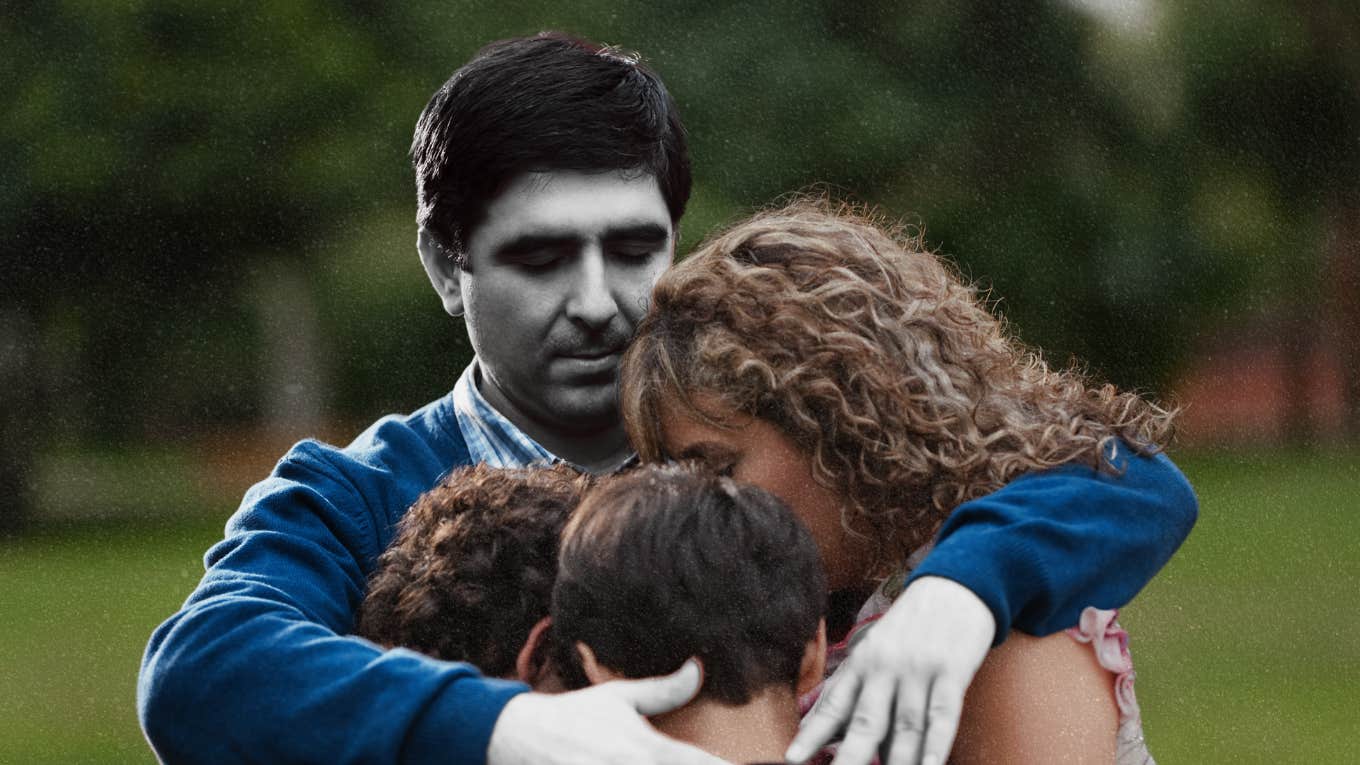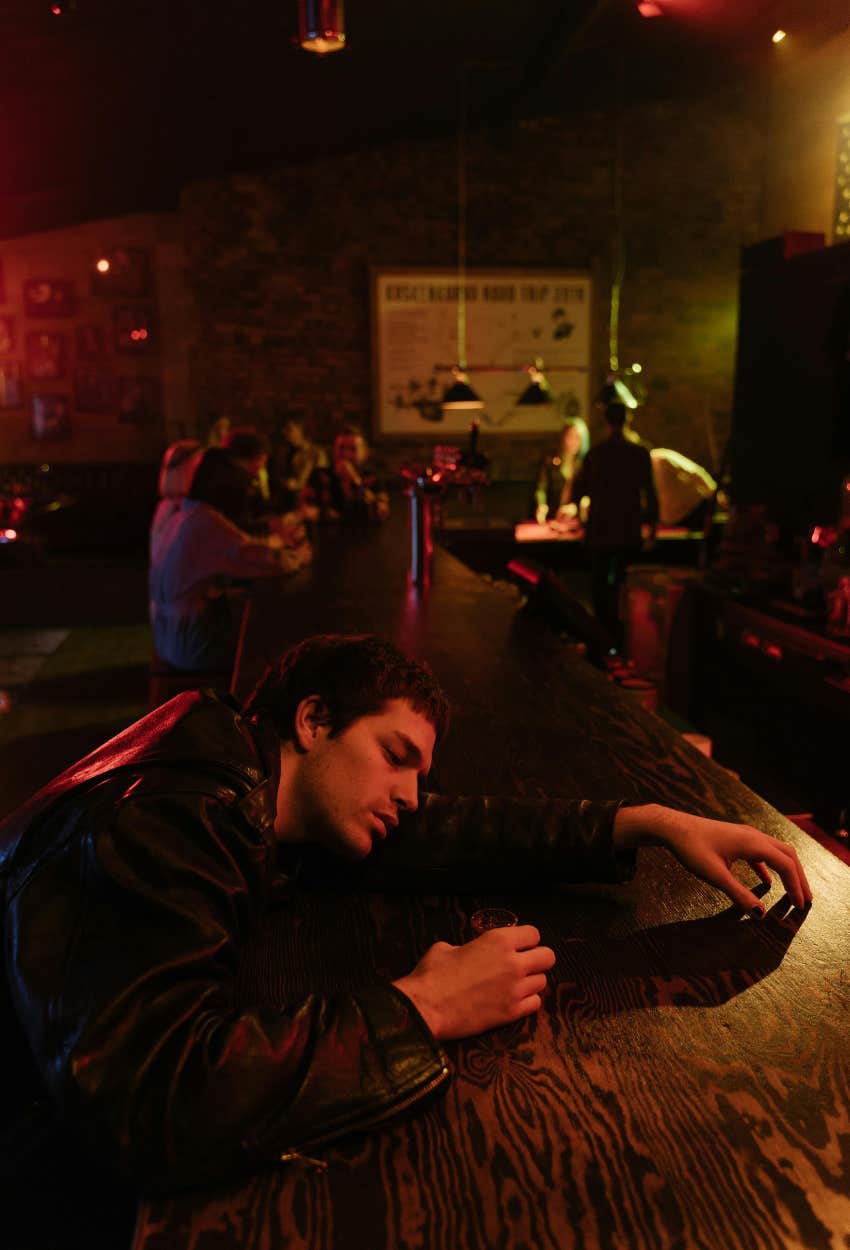9 Revealing Signs A Partner's Drinking Is Destroying Their Family
Signs that a person's drinking is tearing their family apart.
 aldomurillo | Canva
aldomurillo | Canva When was the last time you took a hard look at your drinking? More to the point, when did you last look at the effects of your drinking on your family and loved ones?
Alcohol is a depressant drug. According to research, it slows brain activity — dulling your perception and judgment. This means that it impairs your thinking and makes you less sensitive to the needs and wants of others.
Unfortunately, the more you drink, the more this happens, which is one reason why drinkers are often accused of being self-centered, insensitive, and having an alcohol addiction.
If you feel there's a chance you drink too much and that your family is greatly impacted, then you need to examine your behavior. This article provides a list of the signs that suggest your drinking may have a detrimental effect on your nearest and dearest.
However, before we discuss the list, we need to say two things: be honest with yourself (it's an absolute requirement), and second this is not an exhaustive list, so even if none of these signs apply, you could still be harming your family.
Here are 9 revealing a partner's drinking is destroying their family:
1. Does your family complain that they do not have enough quality time with you?
You may spend much of your time at a bar or drinking with friends. Alternately, you're a home drinker but your family may still not get quality time with you, particularly if you're rarely sober.
 Pexels / cottonbro studio
Pexels / cottonbro studio
2. Do you promise to do things or places and fail to deliver?
Drinkers are often unreliable. Their intentions are usually good, it's just that alcohol often comes first and the good intentions are forgotten.
3. Have the number of visitors (to your home) dwindled?
Family members may be worried about inviting their friends to the house, as they're afraid that you'll be on a bender.
4. Have the invitations to parties and friends’ houses also reduced?
Have people stopped extending an invite to their home?
5. Is your partner becoming increasingly socially isolated?
Do they seldom see friends and relatives that they once saw regularly?
6. Has your spouse's health deteriorated?
Are they taking medication for anxiety or depression? Has she lost weight or gained significant amounts of weight? Does she seem more stressed and less able to cope?
7. Do your children try to avoid you?
Alternatively, do they try pleading with you about your drinking? Have you ever considered what it's like for your children to grow up with an alcoholic parent?
8. Are your kids' grades deteriorating?
Are they not realizing their potential? Are they moody and reclusive?
9. How are your finances?
Have they deteriorated along with the rest of your life?
Of course, one can explain away all these signs with causes other than drinking. However, if some of the signs are present in your family life, then you should look at your drinking. The more of them that are present the more likely that drinking is the cause.
Drug and alcohol addiction is incredibly common.
The Substance Abuse and Mental Health Services Administration (SAMHSA) reports that approximately 20.3 million people above the age of 12 have suffered from a substance use disorder in the past year. According to SAMHSA’s 2018 National Survey on Drug Use and Health, close to 2 million people of the same age bracket have suffered from opioid use disorders and 14.8 million from alcohol use disorders.
If you or someone you know is suffering from addiction, there are resources to get help.
The process of recovery is not linear, but the first step to getting better is asking for help. For more information, referrals to local treatment facilities and support groups, and relevant links, visit SAMHSA’s website. If you’d like to join a recovery support group, you can locate the nearest Alcoholics Anonymous or Narcotics Anonymous meetings near you. Or you can call SAMHSA’s National Helpline at 1-800-799-7233, which is a free 24/7 confidential information service in both English and Spanish. For TTY, or if you’re unable to speak safely, call 1-800-487-4889.
John McMahon has a PhD in Psychology and was a senior lecturer on alcohol and drug studies.
Lou Lewis is a Counselor and author of the book No Easy Answers.
